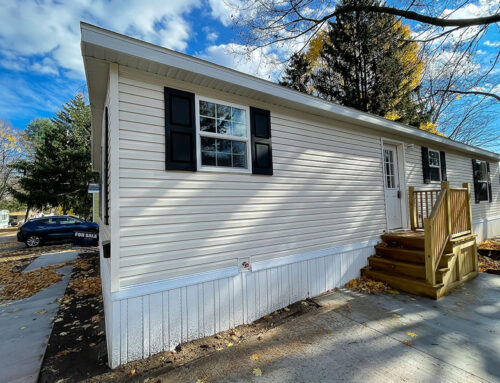One of my first real estate investment houses in Albany was broken into. The rehab had barely begun, so I wasn’t terribly concerned about anything of value being stolen. But, as it turns out, I should have been. I was originally just going to do a minor kitchen renovation on the investment property because the previous owners had done a decent job of maintaining it over the years. After the break-in, however, we had to perform a major overhaul. The copper pipes were gone, as were a lot of the fixtures. And, thanks to the damage done to the plumbing, the kitchen had also flooded. Even worse, since I expected to be in and out of the rehab quickly and the neighborhood seemed pretty safe, I’d skipped insuring my Albany, NY investment property. After my renovation costs skyrocketed, and my profit margin tanked, I decided I wouldn’t make that mistake again.
The Value of Insuring an Investment Property in Albany, NY
So I sought out advice from an expert in the field of investment property insurance. The value of insuring your investment property, Mark Gannaway of Arcana Insurance Services explained, is that if the unexpected happens—like a break-in—you’re not left holding the bag. So, over the course of my conversation with Mark, we talked about several real estate investor insurance coverage options that I should consider for my Albany properties—and not just theft and vandalism. Mark started Arcana in 2005 but had been helping investors protect their investment properties long before that. After meeting with a few less experienced property insurance brokers, I knew I was talking to the right man for the job of protecting my investments.
My mistake had been believing that property insurance for flipping houses was a waste of money, especially in a place like Albany, New York. Our city is about 150 miles north of New York City—far from the high crime rates associated with a major metropolitan area. And, according to the U.S. News & World Report, Albany even experiences lower overall crime than other cities of the same size. So, it didn’t originally make sense to me to buy theft and vandalism coverage since it wasn’t likely I’d need it. Of course, as luck would have it, the unexpected did happen and I was left paying for a much bigger renovation than I’d bargained for. But, Mark assured me that I wasn’t the only cheap-thinking investor out there. He’d met and helped plenty of others in his time.
Below are some of the takeaways from my conversation with Mark about protecting investment properties—and your potential profits—from a disaster.
- Theft and Vandalism. Theft and vandalism can cost you more than just the replacement and repair of the items stolen or destroyed. As in my case, they can lead to additional losses, like damages from flooding if the plumbing is stolen, that will only add to your total rehab expenses if you’re not adequately covered. You won’t necessarily be able to stop the domino-effect that any one particular loss can create, but you can stop your potential profits from getting washed away. And though the crime rate is lower here than the national average, theft is one of the most common crimes committed in Albany. It’s better to be safe than sorry and include theft and vandalism in your policy.
- Water Damage. Whether or not water damage is covered as a result of theft or vandalism will depend on your individual policy and the fine print, so be sure to read it. Even if it is, you might think about getting additional coverage for water damage anyway. Often times, insurance companies won’t cover damage caused by a sewer pipe backing up or ground seepage, for example, if it’s determined the losses occurred as a result of neglect. And, if you’re buying and renovating a distressed property in one of Albany’s historic neighborhoods, it’s always possible that these issues could come up. So, cover all your bases by making sure you’re covered for all causes of water damage.
- Flooding. Policies, and policy add-ons, for water damage won’t automatically cover any losses incurred as a result of a flood or the mudflow caused by one. To be safe, you’ll have to get extra flood insurance that covers both the structure and the contents of the house. The good news is that it’s inexpensive to have a broker determine if your property is at risk of flooding and to provide a quote. With the Hudson River nearby, the possibility of a damaging flood is not far-fetched. Recovering your profits from flood damage shouldn’t be either. I recommend getting the coverage regardless.
- Inclement Weather. Frequently, standard insurance policies will cover the damage caused by inclement weather. However, many will make distinctions between the types of losses that may occur and the kinds of weather that can cause them. So, again, go over your policy in detail with your broker and purchase additional coverage wherever there are gaps. For properties in Albany, you’ll want to pay special attention to what’s covered in the event of a winter storm, cold snap, or spring thaw. Wind, hail, and sleet damage, for example, might not be included under your standard policy, which means you’ll have to buy them separately. But, if the pipes freeze and burst or a tree falls on the roof after a snow, you’ll be glad you did.
- Fire. Losses that occur as a result of fire are sometimes included under certain policies, but exceptions are made and the coverage isn’t always enough. For example, damage by arson isn’t usually included. Neither are losses that happen when a home is vacant, which is more often the case than not if you’re in the middle of a renovation or just put the home back on the market. And, definitions of vacancy can vary between providers, so make sure you understand exactly what your policyholder means. Also, if you decide not to upgrade the electrical during the rehab and hold the property as a rental, your risk of fire increases. The outdated wiring in Albany’s older homes frequently can’t handle the load of modern electronics. Therefore, you’ll want to make sure your policy, and your coverage, can handle whatever damage any fire might throw your way.
In short, if you’re buying, renovating, and selling houses for profit like I do, take care not to skip protecting your properties with the right insurance coverage like I once did. As my own experience made clear, in order to realize the highest possible returns on your investments, you’ve got to protect them. The unexpected—whether it be vandalism and theft, flooding, or bad weather–—can, and eventually will, happen. When it does, you don’t want to be caught off guard with repair costs that turn a promising investment property into a potentially sinking ship.
Safeguard Your Investments With a Network You Can Trust
My conversation with Mark turned out to be one of the most valuable discussions I’ve ever had about investing in real estate. Without him, I might have made more mistakes, and cost myself more money, by buying the wrong policies or not buying enough coverage for my properties. And, without access to a large network of professionals looking after my investing interests, I might not have found a trustworthy broker, like Mark. But just as I didn’t always have insurance for my properties, I didn’t always have a strong network of seasoned HomeVestors® franchisees to ask for help. Once I became an independently owned and operated HomeVestors® franchisee, however, that changed. I know that if need reliable guidance in just about any area of investing, I can safely turn to my Development Agent or franchisee network.
Add value to your real estate investing by working with a network of experts you can trust. Contact HomeVestors® today!
Each franchise office is independently owned and operated.
Contact
"*" indicates required fields





